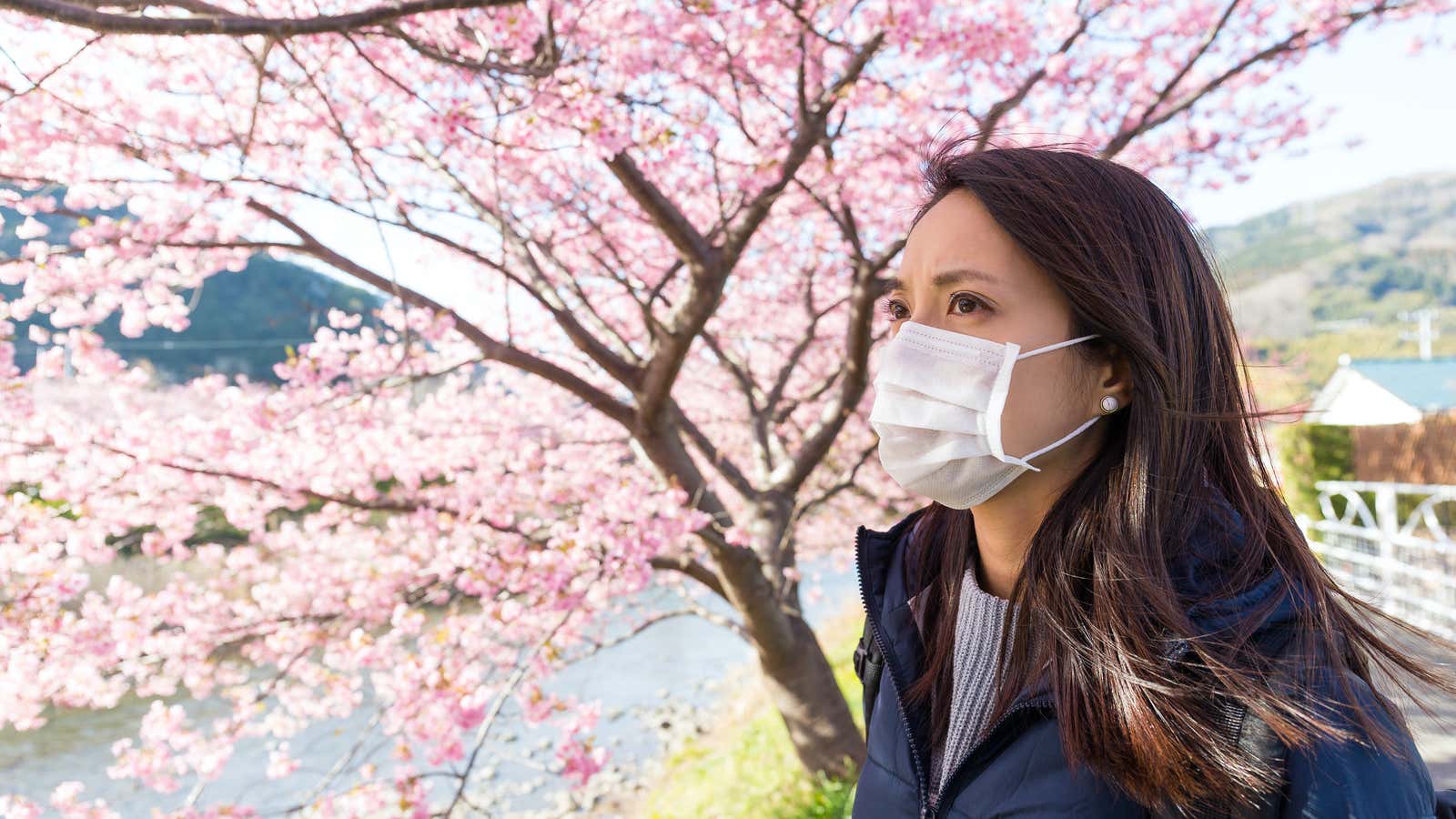If You Are Allergic, Do Not Remove the Mask.

If you are fully vaccinated, you may be looking forward to using masks less and less now that the CDC said that fully vaccinated Americans can go without masks in many situations . But if you are allergic to dust or pollen, it may be worth keeping them with you.
Pollen particles vary in size, with wind-blown pollen from trees and grasses ranging from 10 to 20 microns. To give a sense of scale, the N95 masks get their name because they filter out 95% of 2.5 micron particles. Because pollen is much larger than droplets and particulate masks filter out, this means that these masks are also useful barriers against pollen and similar allergens. The same goes for surgical masks and many types of cloth masks . Chances are, whatever mask you wear to protect against COVID-19 is likely to be effective against allergens as well.
During the pandemic, allergists noted that their patients find it easier to cope with allergy symptoms when they wear masks outdoors (during pollen season) and in other places where airborne allergens (such as dust) may be present.
If you want to use a mask to prevent allergy symptoms, choose one that provides good filtration (such as a multi-layer woven cotton mask, surgical mask, or N95 mask) and wear it so that it fits snugly against your face. If, for example, there are gaps between the mask and the edges of the nose, you can suck in air filled with pollen through them.
A mask won’t be the perfect solution to your seasonal concerns, as some allergens can still irritate your eyes and skin, but it will probably help immensely with those you would otherwise be breathing. And if you have asthma in addition to your allergies, you may find (as I do!) That wearing a mask on cooler days can help prevent wheezing that occurs with exercise-induced asthma . So even if you don’t have allergy issues right now, save these masks for the cool weather and ragweed pollen you may encounter this fall.